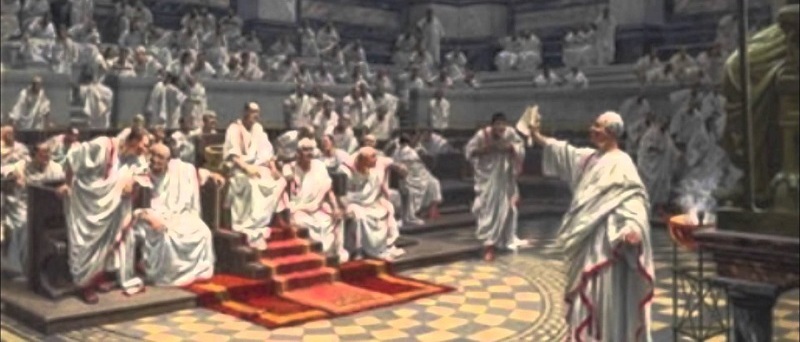Social Status and Government in Ancient Greece
Posted on 26th December 2020
Social Structure - In Athens there were different social classes based on wealth. It was sometimes possible for men to move up a social class if they made more money or down a social class if they lost their money.
There was no central government in Ancient Greece; City-states governed individually, made their own laws and had their own coinage.
Free male citizens were at the top of the social structure, the only people to enjoy the responsibility of politics in Greece. They ruled in government and partook in philosophy and literature; they did not have jobs themselves, but oversaw the work of their slaves.
The middle classes (Metics) were immigrants to Greece who worked in businesses and as merchant tradesmen. They were not classed as full citizens, couldn’t own property or land, or speak in legal proceedings. They were not allowed to marry above their social class.
Women were ruled over by men in Athenian society; any legal and social status they derived from their husband. They were not permitted to take part in public life.
Slaves were the lowest of Greek society and had no legal rights at all. They were taken as prisoners of war or traded as slaves; there were public slaves, temple slaves and privately owned slaves.
In Sparta, all Spartan men and warriors (Spartiates) were equal. There were also tradesman and manufacturers (Perioeci). These were responsible for business matters and they also manufactured Spartan weapons. The lowest class were the slaves (Helots).
City-states ruled in one of 3 ways.
Democracy - Athens ruled by democracy and the government was elected to rule for one year. Only Athenian citizens that had completed military training could vote and this only constituted approximately 10 – 20% of the population. Voting was completed by a show of hands. Women, children and slaves were not permitted to vote.
Monarchy - City-states ruled by a king or tyrant.
Oligarchy - Ruled by a small group of wealthy people. Sparta was ruled by a minority of rich men (Elders) and respected warriors.
Tagged as: Junior Ancient Greece
Share this post:





